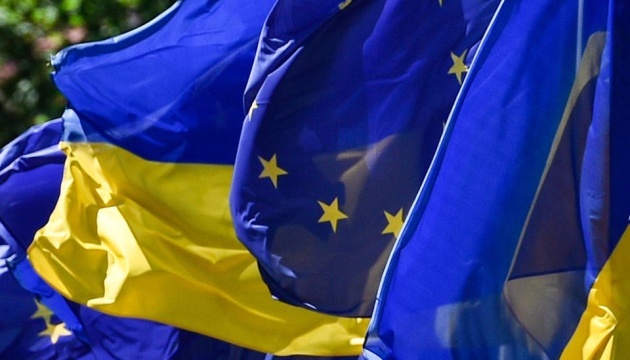Ukraine remains committed to European Union membership but must do more to strengthen the rule of law, according to a European Commission draft enlargement report.
The document, due for adoption on Tuesday, praises Kyiv’s “remarkable commitment” to the accession path amid Russia’s war, while warning that recent negative trends on anti-corruption and pressure on civil society need to be reversed.
Ukraine applied to join the EU days after Russia’s full-scale invasion in February 2022 and opened accession negotiations in 2024. Over the past year, the Commission says, the government has launched reform processes despite wartime constraints. Even so, Brussels highlights persistent risks in judicial independence, the fight against organised crime, and the safeguarding of watchdog institutions. These areas sit within the “fundamentals” cluster of chapters that the EU regards as decisive.
One episode has sharpened scrutiny in EU capitals. In July, Kyiv moved to expand the authority of the prosecutor general — a political appointee — over the National Anti-Corruption Bureau and the Specialised Anti-Corruption Prosecutor’s Office. Street protests followed and the authorities rapidly reversed course. The draft report nevertheless flags the incident as evidence of pressure on specialised agencies and on civil society actors involved in oversight. The Commission states that such trends must be decisively reversed.
The political context inside the EU also complicates the picture. Accession requires unanimous approval by all 27 member states at key decision points. Hungary continues to block Ukraine from moving to the next phase of negotiations, citing concerns including minority-language rights. While most governments voice support for Ukraine’s European perspective, diplomats say full membership is not imminent and will depend on reforms in Kyiv and political convergence across the bloc.
Kyiv has told EU officials it aims to complete accession talks by the end of 2028. The Commission describes the objective as ambitious but achievable if the pace of reform accelerates, particularly on rule-of-law benchmarks. Progress in the justice sector, durable guarantees for the independence and resourcing of anti-corruption bodies, and stronger protection for civic freedoms are presented as the core requirements for keeping the timetable in view.
The draft suggests a broader lesson from recent enlargements. To protect democratic standards after entry, the Commission proposes inserting stronger safeguards into future Accession Treaties to guard against backsliding on commitments made during negotiations. Such provisions would mirror the Union’s growing use of rule-of-law conditionality in budgetary instruments and could offer a clearer toolkit if problems arise after accession.
On the technical track, Ukraine has completed the screening of negotiation chapters but awaits political clearance to open further clusters. The draft acknowledges advances in public administration reform and in aligning legislation with parts of the EU acquis.
For Brussels, the calculus balances geopolitical urgency with institutional criteria. Russia’s aggression has made Ukraine’s integration a strategic priority for many member states; at the same time, officials stress that the acquis and the Copenhagen criteria remain the yardstick. The Commission’s message is that the door remains open, provided reforms are deepened and insulated from day-to-day politics.
Attention will now turn to whether member states endorse the report and how Budapest positions itself in the coming weeks. A decision to advance talks would signal confidence in Ukraine’s trajectory while keeping leverage on rule-of-law delivery. Continued blockage would leave Kyiv reliant on incremental technical work and bilateral engagement with sceptical capitals.
For Ukraine’s leadership, the next phase will be judged on substance: judicial appointments insulated from political influence; a track record of high-level corruption cases that proceed without interference; effective action against organised crime; and a legal environment in which civil society and independent media operate freely. Meeting these tests would strengthen Ukraine’s case for opening and closing core chapters on justice and fundamental rights, and would underpin the 2028 timetable.
The Commission’s draft frames the coming year as decisive. Wartime resilience and legislative activity have kept the bid on course. The remaining task — and the one most closely watched in Brussels — is to show that institutions responsible for the rule of law can act independently and consistently, even under the stresses of conflict. Member states will review the findings alongside assessments for other candidates in the 2025 enlargement package.


